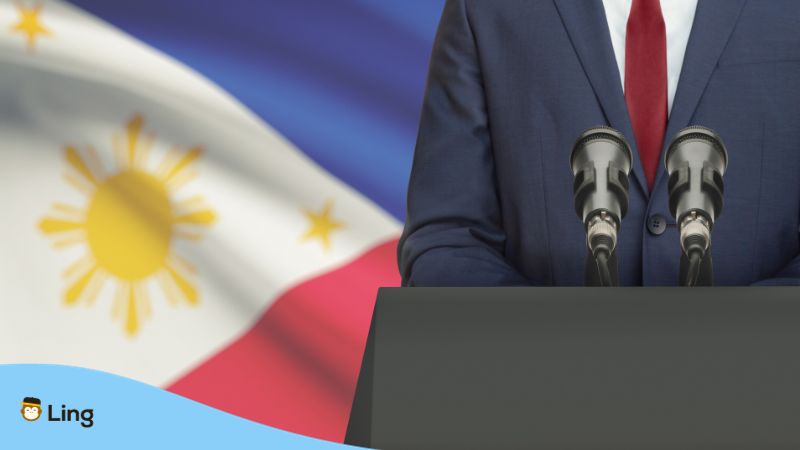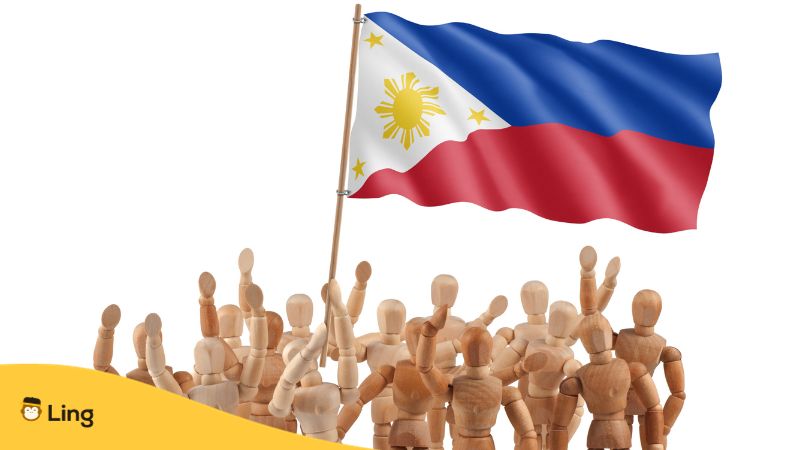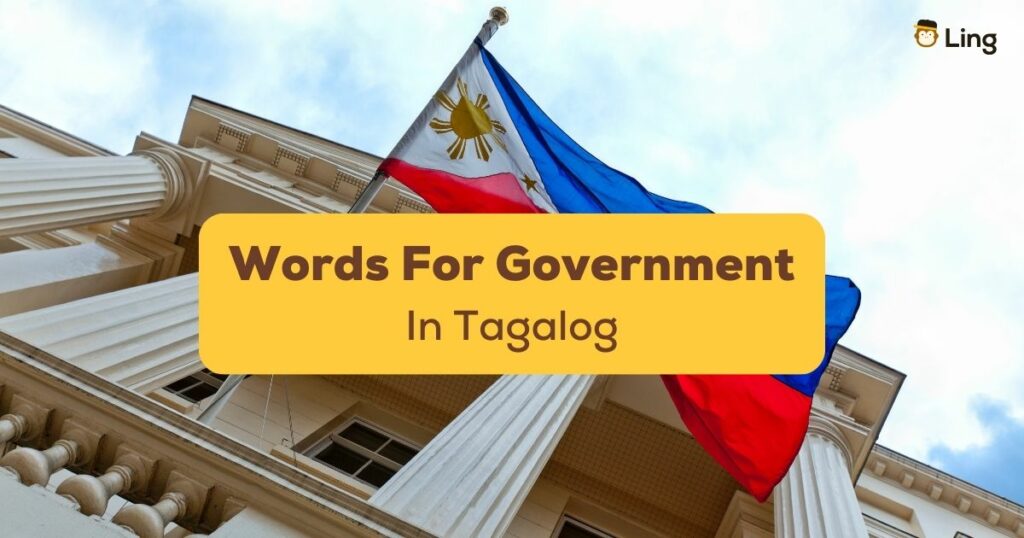Have you ever found yourself in an intense political discussion about Philippine affairs, but clueless about what words to use? Don’t sweat it! You’re not the first one, and you definitely won’t be the last. That’s why we thought it’d be great to help you out with some handy Tagalog words for government.
Just picture this – your Filipino friend is discussing the latest Philippine laws, and you’re completely in tune with the conversation. Exciting, isn’t it? But hold your horses; there’s more to learning the Tagalog language than just knowing a bunch of words. It’s all about the deep dive – into specific topics like government jargon, for instance. Why should you bother? Well, your Tagalog conversations will sparkle with confidence, and you’ll even get a closer look at Filipino culture.
Tagalog Words For Government: The Basics
Let’s start with the basics. The Tagalog word for government is Pamahalaan. It’s like the heartbeat of any country, right? We all know demokrasya (democracy) is the name of the game, and the Philippines is keen on it. We’re a proud Republika (republic), all about the people’s voices.
Next stop, let’s get acquainted with the folks that keep the wheels of the government spinning. It’s just like a big family – everyone has a unique role!
Constitution (Saligang Batas)
Think of this as our national rulebook. It’s like trying to assemble IKEA furniture using an enormous manual — plenty of pages, somewhat baffling, and you’re left hoping you’re doing it right.
President (Pangulo)
This is like being the captain of a ship, complete with the blame-loaded Twitter frenzy when problems arise. Not the easiest job in the world, for sure!
Vice President (Pangalawang Pangulo)
Think of this role as the faithful sidekick, always there to step up when needed. Just imagine being Batman’s Robin, minus the cool gear.
Congress (Kongreso)
This is where all the magic happens. It’s a bustling hub of ideas and decisions, much like a gigantic brainstorming session, with more debates and fewer PowerPoint decks.
Senator (Senador)
These are the seasoned folks of the political world. You can liken them to the Yodas of governance — less about Force wisdom, more about getting laws passed.
House Of Representatives (Kapulungan Ng Mga Kinatawan)
A stage for political superstars who ensure everyone’s voice is heard. It’s a bit like a talent show where members give their best performance, all for the essence of democracy.
Mayor (Alkalde)
The mayor, or as they say in the Philippines, Alkalde, is the head of a town. The mayor is the go-to person for both serious stuff, like making big decisions, and fun stuff, like cutting ribbons at grand openings. It’s a tough job, but someone’s got to do it!
Governor (Gobernador)
Gobernador, or Governor in English, is like the CEO of a state. It’s a bit like juggling multiple responsibilities without dropping the balls. The governor is in charge of making sure everyone in the state is happy and playing nicely together.

Tagalog Words For Government: Election-Related Terms
Elections in the Philippines are a bit of a celebration. Think of it as choosing your prom king or queen but on a national scale! Here are Tagalog words for government – election edition:
Politics (Pulitika)
Ah, politics – the art of making decisions for a bunch of people without actually asking them. It’s like trying to organize a group of friends to pick a pizza topping, but instead of pepperoni or mushrooms, it’s about taxes and laws. Sometimes it feels like one big game of chess, but with more arguing and fewer checkmates.
Party (Partido)
No, we’re not talking about the kind with balloons and cake (although, that would be fun too). In the world of politics, a party is like a clique, but with suits instead of matching t-shirts. They have their own ideas, their own colors, and occasionally their own dance moves – political dab, anyone?
Election (Halalan)
Imagine a popularity contest, but instead of voting for your favorite singer, you’re picking the person who will make the rules for the next few years. It’s like choosing a team captain for the whole country. And just like in high school, there’s always that one candidate who promises longer recess.
Candidate (Kandidato)
Meet the contestants of the political reality show. These folks are like job applicants, but instead of submitting a resume, they’re telling you how great they are on TV and other platforms. It’s a bit like swiping right or left but with policies instead of profile pics.
Platform (Plataporma)
No, we’re not talking about shoes or diving boards here. In Philippine politics, a platform is like a menu of promises – a politician’s way of saying, “Hey, if you choose me, here’s what I’ll do!” It’s like a buffet, but with less food and more talk about fixing roads and creating jobs.
Coalition (Koalisyon)
Imagine trying to build the ultimate squad in a video game, where each member brings something different to the table. In politics, a coalition is like that super team. It’s when parties join forces, creating a power-packed combo to get stuff done. It’s the Avengers of the political world – just with fewer capes and more paperwork.
Learning Tagalog, especially words used in government and elections, can be a challenge. However, thanks to resources like the Ling app and others, the task becomes a significantly easier one. These apps can be conveniently downloaded onto your Apple and Android devices.

Discovering The Philippine Government Through Tagalog
Learning Tagalog words for government opens a new window to understanding how the Philippine political structure works. The native tongue serves as a gateway to the societal core of a nation, and Tagalog is no different.
From pamahalaan (government) to halalan (election), these terms depict how democracy is implemented and perceived in the Philippines. Getting to know these Tagalog words for government isn’t just about acing formal chats, but about embracing the lively democracy that’s the heartbeat of Filipino politics.



































































